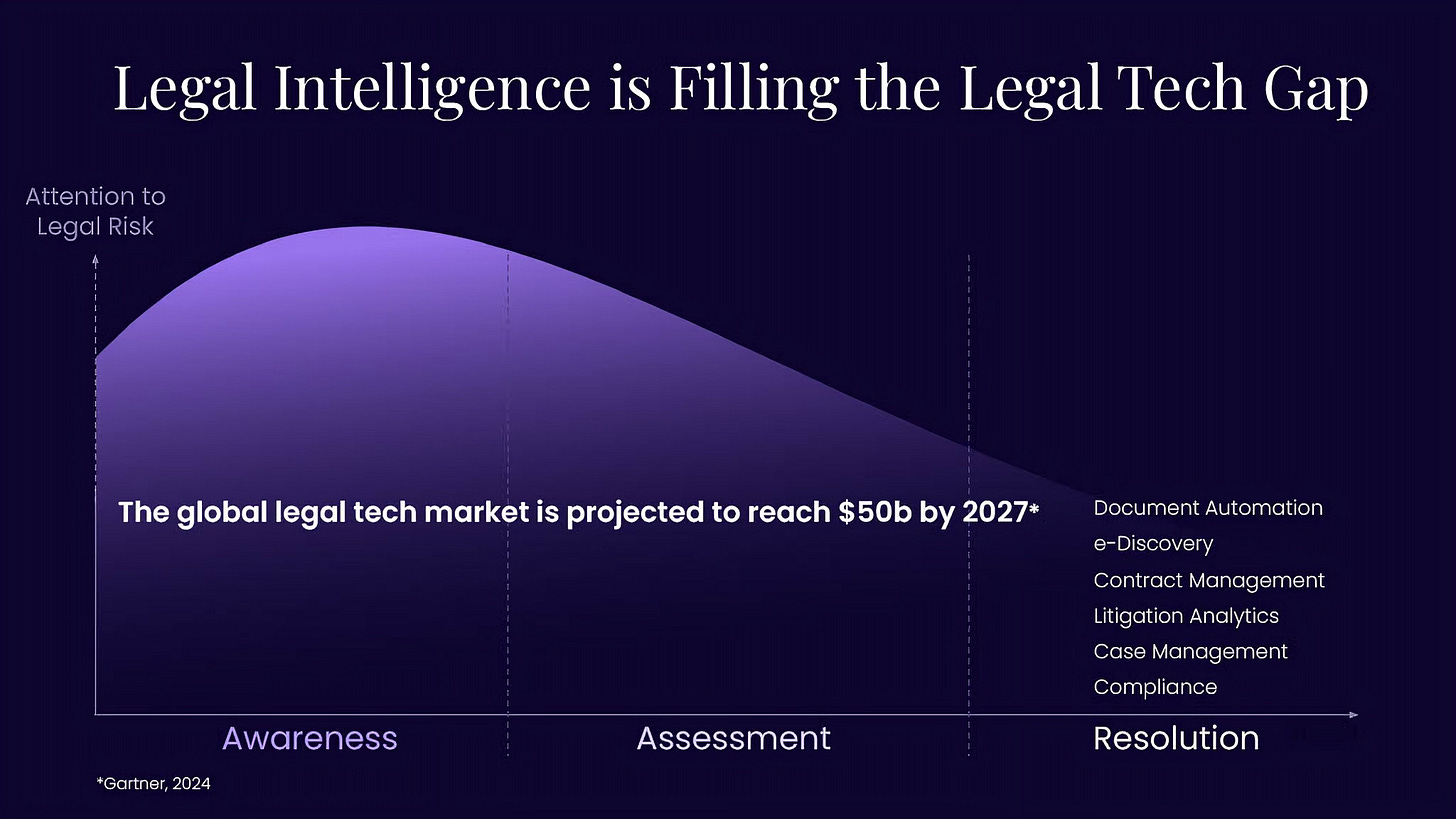📊 Darrow is Turning Raw Data into Legal Firepower ⚖️💥
Would you like to be featured in our newsletter🔥 and get noticed, QUICKLY 🚀 (55K+ subscribers)? Reply to this email or send an email to editor@aibuzz.news, and we can take it from there.
Legal tech is evolving from back office support to frontline enforcement.
While most AI headlines focus on generative tools for coding, writing, or design, a quiet revolution is happening in a very different part of the tech world. Darrow, a legal tech company, has built technology that helps lawyers find legal violations that no one else sees.
This new category of legal tech is called legal intelligence, and it’s the structured process of scanning public data to detect legal violations at scale. Instead of waiting for harm to be reported, carefully built legal intelligence infrastructure finds patterns of misconduct hiding in publicly available sources and builds evidence to turn them into actionable cases.
This is exactly what Darrow is doing. Combining large language models, machine learning, web intelligence, and legal expertise, this tech company is powering a new kind of legal discovery.
Most Data Gets Ignored. Darrow Turns It Into Evidence.
Public data is published every second across the internet: user complaints, app store reviews, environmental filings, financial disclosures, and regulatory records. These documents often sit untouched, even when they contain signs of unlawful behavior.
Darrow’s technology scans data from thousands of sources, across multiple domains, and AI models summarize and organize unstructured text, then cluster similar issues together. The team’s attorneys and legal intelligence analysts then evaluate whether the content might point to a violation of law.
This process blends automation with human judgment. It doesn’t replace lawyers, but it gives them a clearer view of where harm is happening and how to respond.
For example, Chicago-based class action attorney, Kristina Carroll, partnered with Darrow after the company flagged privacy concerns involving the dating apps Bumble and Badoo. Carroll filed a class action against parent company Bumble Inc., which settled last year for $40 million.
What’s fascinating is the fact that the case didn’t come from a whistleblower or a high-profile news investigation, but from public data interpreted by attorneys and a legal intelligence system trained to look for the kinds of issues most people miss.
A Targeted System for Different Types of Harm
Not every legal violation looks the same. A case about data privacy involves different signals than one about environmental harm or deceptive pricing. Darrow’s team of data scientists, engineers, attorneys, and legal intelligence analysts build specialized detection tools for each area of law, combining subject-matter expertise with training data specific to the problem.
The company builds tools with different intent, based on the type of violation it’s looking for. In an antitrust investigation, the company might focus on price changes and customer complaints. In a privacy case, it might flag suspicious onboarding language or metadata collection.
Legal Intelligence Makes the Invisible Visible
Evidence for legal violations is often scattered across unrelated sources, buried in technical documents, or locked behind vague legalese.
Legal intelligence brings that evidence to the surface. It helps lawyers spot systemic problems, evaluate them faster, and take action before harm spreads further.
Darrow is building the infrastructure needed to uncover violations at scale and connect them to real-world enforcement, creating a whole new approach to scaling legal accountability.
To learn more about Darrow’s technology, check out this article on Darrow’s blog: Using Legal Intelligence to Turn Data Into Justice





Hi! I'm Harshith. I write on VC and Startups in the LegalTech sector.
https://open.substack.com/pub/harshithviswanath/p/perplexity-launches-perplexity-patents?utm_source=share&utm_medium=android&r=4y4gfu